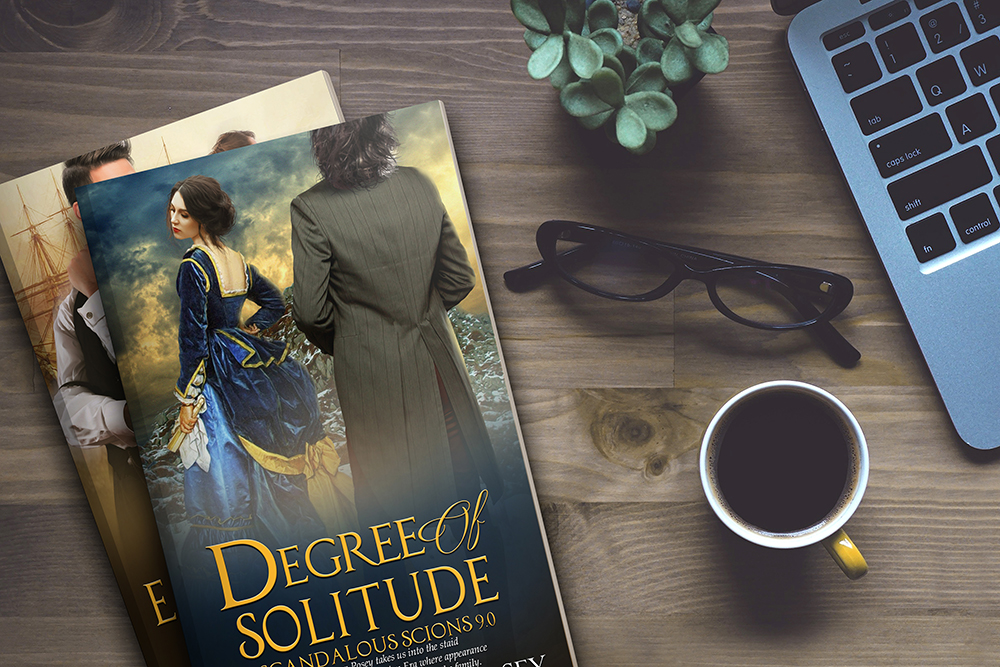
It’s pretty common and far easier to think of the “Victorian Era” as one unchanging snapshot in time, where the women wore pretty things and the men were all gentlemen and lords.
The Victorian era, though, lasted 64 years, from 20 June, 1837 until Queen Victoria’s death on 22 January, 1901. In that time, the world shifted from pastoral, low tech life into the very beginnings of the modern era.
You can see the shift very clearly if you look at the development of the medical profession across that era.
When Queen Victoria first took the throne, doctors were not well educated. They still considered leeches a form of medicine, and bleeding people to remove infections was common practice. There was no professional administrative body. Anyone could call themselves a doctor, and doctors treated humans and animals. They also practiced a very simple dentistry, usually extractions.
Surgery was rudimentary and the patient still had a good chance of dying from post-surgery infections.
Women risked death with every baby they delivered, and many of them did die. In fact, the number of women dying from childbirth increased the more doctors attempted to stem the crisis.
In 1846, a Hungarian doctor, Semmelweis, noticed that there were higher childbirth deaths among women who were delivered by doctors, than those who were delivered by midwives, by a factor of five to one. The difference was that doctors did autopsies with the same instruments as they performed deliveries, and they didn’t wash their hands, either.
He proposed that doctors wash their hands, and that their instruments be cleaned with chlorine, and instituted the practice in his hospital. The number of childbirth related deaths plummeted.
Was Semmelweis celebrated for this practice?
He was laughed at, and treated with disdain. He wasn’t the most tactful man, and would scream at doctors to wash their hands. Doctors resented his interference and his theories, which made it look like they were the cause of women dying (they actually were, but…).
Semmelweis was drummed out of his job and ended up in a mental institution, where he died of infection, which is surely one of the most ironic deaths in history.
It took another fifty years for the medical profession to clean up its act (literally). When Queen Victoria died, doctors were just starting to explore germ theory, sterilization and other practices that would revolutionize medicine. They had also established a ruling body (The Royal College of Physicians and Surgeons, in Britain), and were regulating the education and practice of medicine and doctors.
Queen Victoria was a recipient of medical breakthroughs, using chloroform for the delivery of her last two children. The doctor who provided the pain-free delivery was Dr. John Snow, who was knighted for his efforts.
From leeches to sterile surgeries and the beginnings of a regulated pharmaceutical industry in sixty four years isn’t too bad at all.
But it was poor Semmelweis who stuck in my mind when I was researching surgery practices in the Victorian era, and it was his misfortune which inspired the character of Sir Gethin Merrick, who plays a vital role in the end-game of Degree of Solitude, and also gives Catrin so much to think about, early in the book.
Here’s a quick snippet:

EXCERPT FROM DEGREE OF SOLITUDE
COPYRIGHT © TRACY COOPER-POSEY 2019
ALL RIGHTS RESERVED
Merrick raised his brow.“Daniel…that’s the man with the injured face, yes? The Williams son?”
“My cousin,” Catrin reminded him.
“Ah…the house of scholars. Yes,” Merrick said.
“I don’t understand,” Catrin admitted.
“Ysgolheigion,” Nevern said. “It means ‘scholars’ in Welsh.The stream that runs through the land is the Afon Ysgolheigion.”
“I didn’t know that.” She liked the name. It seemed ironic that neither of the two people living in a house of scholars had ever been successful scholars. “Perhaps you linger in Newport because you are Welsh and love your native land, Sir Merrick?”
“Or perhaps, as a Welshman, this is the only place which cannot turn me out,” Merrick replied. His smile was knowing and filled with amusement.
Nevern snorted. So did Jones, who drained his glass and moved over to where the butler stood by the trays of decanters.
Catrin tried to puzzle through the unspoken comments. Was this something to do with Merrick’s soiled reputation?
The Baroness waved to Nevern.
“Excuse me,” Nevern murmured. “I must mollify my wife, for I arrived late to my own party.” He moved around the groups of people to where she stood.
That left Catrin alone with Merrick. Merrick leaned against the piano as Jones had been doing. He made it look elegant, though. “How do you find Ysgolheigion, Miss Davies?” His gaze was steady.
She wondered how much he knew about Ysgolheigion and Daniel, despite his vagueness about ‘the Williams son’.”
“I can’t say I’ve learned very much at all,” she replied. “I only arrived this afternoon.”
“Surely, that is long enough for a clever woman like you to draw some conclusions?” Merrick said.
She considered him. He was not leering or complimenting her. He was not finding some small excuse to touch her or draw closer to her. His posture was relaxed, nearly inclined.
“Would you draw a conclusion after a single examination, Sir Merrick?” she asked.
His smile broadened. “Sometimes, a single glance is all that is needed to understand the truth. For instance, I have noticed that you do not drink your champagne, even though you appear to sip it. That means you wish to keep a clear head. After a lengthy journey today, you have dressed carefully and attended a dinner party full of strangers. You have a purpose here tonight, Miss Davies, and it is not one of relaxation and entertainment.”
Catrin kept her face still, not betraying her surprise. “Was the reason for your expulsion from society something to do with your preferred choice of company, Sir Merrick?”
He laughed loudly. Catrin sensed the other guests glancing their way. Merrick recovered, still smiling. “A clever woman, as I said. I deserved that, I suppose. Ah…but if I was ten years younger, and more inclined toward someone of your beauty, then…” He sighed.
Catrin pretended to sip her champagne and his smile broadened.
She found herself laughing. “I suspect you were once a rogue of unique talents, Sir Merrick.”
He winked.“I still am a rogue. There a freedom which comes with losing one’s reputation.”
“Is there?” she asked seriously. “Did you not lose your profession at the same time?”
“That is a different matter,” he replied, his smile fading, too. “Fools and idiots, if they present a proper appearance and say the right words, are unassailable.”
Catrin frowned. “You said the wrong words,” she guessed.
“I said them frequently and loudly. It does not pay to upset the status quo. I made the wrong people uncomfortable.” He hesitated. “I relied upon empirical evidence to shape the way I worked. The established medical professionals prefer ‘good sense’ to dictate their methods.”
“I begin to see why you are persona non grata now, Sir Merrick. Logic and reason are rarely welcomed.”
“Especially when presented by a beautiful woman,” he replied.
“Very much so.”
They smiled at each other.
“May I escort you to the dinner table, Miss Davies?” Merrick asked, as the butler shook the little bell.
Catrin was more than happy to take his arm.
Degree of Solitude is released on April 4, but is already available for pre-order. It will remain at the pre-order price of $2.99 until shortly after the release, when it will be raised to the full retail price of $4.99. Click here to read an excerpt and for buy links.
Cheers,

.
Take my stories on a test run. 4 full novels free. Sign up below.